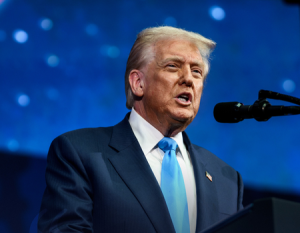Rachel Reeves announces details of £15 billion transportation initiatives - here's what we know.
New trams will be introduced in various UK cities.

As we look ahead to the future, let's take a moment to reflect on what's coming up next. There's always something new to look forward to, and that's especially true for eight regions in the UK. These regions are about to receive a major investment of £15 billion to improve their public transport systems, including trams, trains, and buses.
This exciting news was announced by Chancellor Rachel Reeves, who is committed to boosting public transport in the North and Midlands. This decision comes just two weeks after South Western Railway became the first train operator to be nationalised. The regions set to benefit the most from this funding are Greater Manchester and the West Midlands, with £2.5 billion and £2.4 billion respectively.
For Greater Manchester, this means an extension of their network to Stockport, as well as new stops in Bury, Manchester, and Oldham. The West Midlands will see an extension of services from Birmingham city centre to the new sports quarter. This significant investment comes just before Reeves' spending review next week, where she will outline the government's budget for the NHS and other public services.
During her announcement in Rochdale, Reeves emphasized the importance of connectivity in unlocking the potential of towns and cities outside of London. She stated, "Stronger transport links within cities and the towns around them create opportunity by connecting labor markets and making it easier for firms to buy and sell goods and services in different places, to different people."
To stay updated on all things politics, be sure to sign up for Metro's newsletter, Alright Gov? Our political analyst, Craig Munro, breaks down the chaos in Westminster into easy-to-follow insights, so you can understand how the latest policies will affect you.
Moving on to the specifics of the funding, each region will receive a different amount, depending on their proposed projects. Greater Manchester will receive £2.5 billion to electrify buses, open new tram stops, and integrate their local rail lines and stations into the Bee Network. This network, named after the city's emblem, the worker bee, will allow passengers to seamlessly travel using a contactless card, Apple watch, or phone, with capped fares, similar to London's Transport for London network.
Liverpool City Region is set to receive £1.6 billion to build new rapid transit links to the John Lennon Airport, Everton, and Anfield, as well as a new bus fleet serving the Wirral and St Helens. Mayor Steve Rotheram is thrilled with this investment, calling it the "biggest ever" in transport spending for the region.
Meanwhile, the West Midlands will receive £2.4 billion to extend their metro system from Birmingham city centre to the new sports quarter. This extension will have over 80 tram stops and 20 interchanges, connecting Wolverhampton, Birmingham, Dudley, Brierley Hill, Digbeth, North Solihull, Birmingham Airport, the NEC conference centre, and HS2.
Lastly, the East Midlands will see the creation of a tram system between Derby and Nottingham, with a pledge of £2 billion from the Chancellor. This will provide a much-needed transportation option for the people in this area.
Overall, this investment in public transport is a significant step towards improving connectivity and boosting economic growth in these regions. With better transport links, cities and towns outside of London can thrive, and England's underperformance compared to other European economies can be addressed.
Looking to the future, there are exciting developments on the horizon for eight regions in the UK. With a whopping £15 billion investment, improvements to tram, train, and bus connections are set to transform public transport in the North and Midlands. This announcement comes just two weeks after South Western Railway was nationalized, marking a significant step towards a more efficient and reliable network.
Among the regions receiving funding, Greater Manchester comes out on top with a staggering £2.5 billion allocated towards extending their network to Stockport and adding new stops in Bury, Manchester, and Oldham. The West Midlands follows closely behind with a £2.4 billion boost to extend services from Birmingham city centre to the new sports quarter. This investment has been eagerly anticipated and will undoubtedly benefit the local communities.
The timing of this funding announcement is significant, with Chancellor Rachel Reeves' spending review just around the corner. This review will outline the government's budget for key public services such as the NHS. Addressing the importance of this investment, Reeves stated, "connectivity is an absolutely critical factor in unlocking the potential of towns and cities outside of London." She went on to emphasize the benefits of improved transport links, including increased opportunities and easier access to labor markets and goods and services.
Reeves also highlighted the disparity between London and other major cities in England, such as Birmingham, Liverpool, and Newcastle, in terms of infrastructure. This, she believes, has contributed to the underperformance of these cities compared to their European counterparts. However, with this significant investment, there is hope for a more level playing field and improved economic growth.
So, what can we expect from this investment? Let's take a closer look at how each region will benefit from this funding. In Greater Manchester, £2.5 billion will go towards electrifying buses, opening new tram stops, and integrating local rail lines and stations into the Bee Network. This integrated network will allow for seamless travel between different modes of transport, similar to London's Transport for London network. Mayor Andy Burnham is confident that this investment will make Greater Manchester the first region outside of London to have a fully joined-up transport system.
Liverpool City Region will receive £1.6 billion to build new rapid transit links to John Lennon Airport, Everton, and Anfield, as well as a new bus fleet serving the Wirral and St Helens. Mayor Steve Rotheram sees this as the "biggest ever investment in transport spending," which will undoubtedly have a positive impact on the local community.
West Midlands will also benefit greatly from this investment, with £2.4 billion allocated towards extending the metro from Birmingham city centre to the new sports quarter. This expansion will connect over 80 tram stops and 20 interchanges, linking key areas such as Wolverhampton, Dudley, Brierley Hill, and Birmingham Airport.
Lastly, the East Midlands will see the development of a new tram system between Derby and Nottingham, thanks to the £2 billion pledged by the Chancellor. This will undoubtedly improve transportation for the people in this area and contribute to the overall success of the region.
Overall, this investment is a significant step towards creating a more efficient and reliable public transport system in these regions. With improved connectivity and better access to key areas, the potential for economic growth is vast. It's an exciting time for these regions, and we can't wait to see the positive impact this investment will have.










